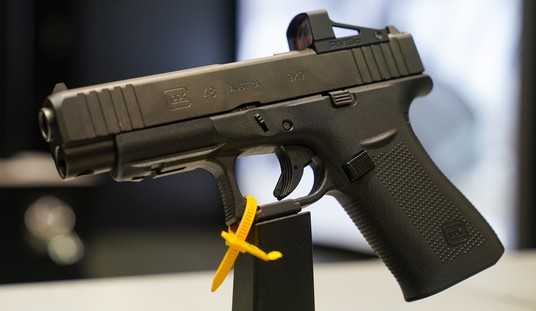Seth Lipsky notes that if big city Democrats continue to try to push a gun control hardline, they may very well end up being swept aside.
There are at least two bills in Congress now that would require states to honor concealed-carry permits issued in another state. One of these reciprocity bills, HR 986, would go so far as to allow persons denied permits to sue for damages.
The bill, at last check, has 176 co-sponsors, including six from New York’s congressional delegation. They include the brilliant upstate freshman, Elise Stefanik, who strikes me as one, though not the only one, who could take a lead on this issue.
At the moment, New York authorities who refuse gun permits to even the sanest citizens stand as a warning to Congress that opponents of guns will take a mile if given an inch. It’s a disincentive for Congress to pass any gun-control measures at all.
Whether or not President Obama speaks on gun control in Charleston, his window for leadership on the issue is rapidly closing.
If the GOP keeps Congress and wins the White House next year, Congress could yet override the ability of states and cities simply to defy the Second Amendment.
Democrats are desperate because they have been hemorrhaging power on the state and federal level since Obama became president, losing hundreds of seats across the nation. The Presidential election year of 2016 could see even greater loses for Democrats as Obama’s divisive “suicide bomber” presidency. The various gun control schemes being offered by Democrats in the House and Senate in recent months are “red meat” political grandstanding to blue state constituencies, in hopes of shoring up faltering support.
But as Lipsky points out, these are not viable tactics, and if Democrats are serious about making any sort of modifications to the nation’s gun laws, they are going to have meet the NRA and the Republican-dominated Congress in a compromise.
The compromise he suggests is working with gun rights supporters to craft legislation that make sit more difficult for the dangerously mentally ill to get firearms, in exchange for robust nationwide firearms reciprocity.
It’s not a bad compromise, on the theoretical level. The devil, of course, is in the details of determining what constitutes a “dangerously mentally ill” person, how reporting is to be set up, whether or not people determined to be prohibited persons under the legislation will be able to appeal their designation, and whether it is even possible to tighten the laws substantially without running afoul of the civil rights of those judged to be mentally ill. Previous attempts to find a compromise along these lines have faltered in the past over these important details.
Lipsky’s advice, of course, will be ignored.
It’s far easier for politicians to offer shallow proposals to rally the base than it is to engage in the much more difficult work of coalition-building to get effective and mutually beneficial laws passed.








Join the conversation as a VIP Member